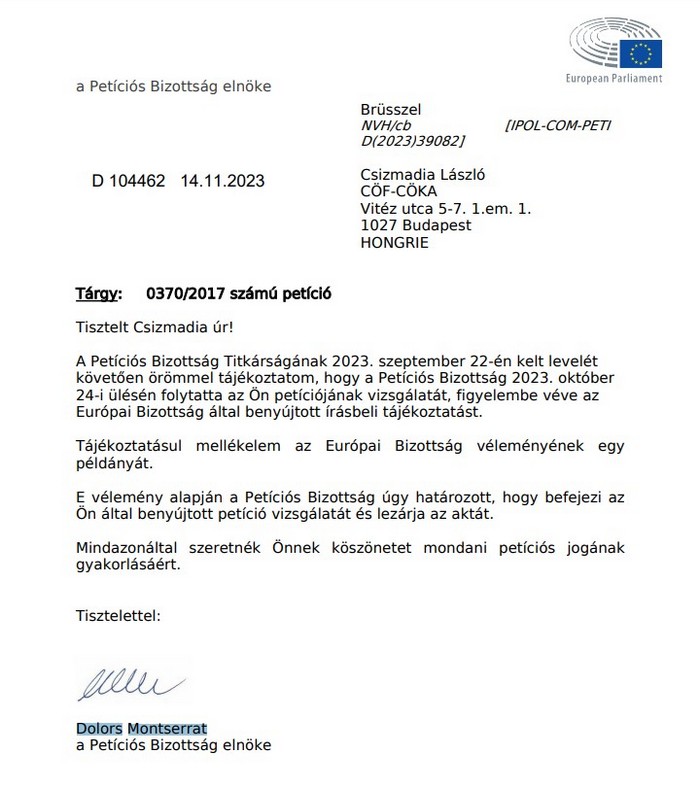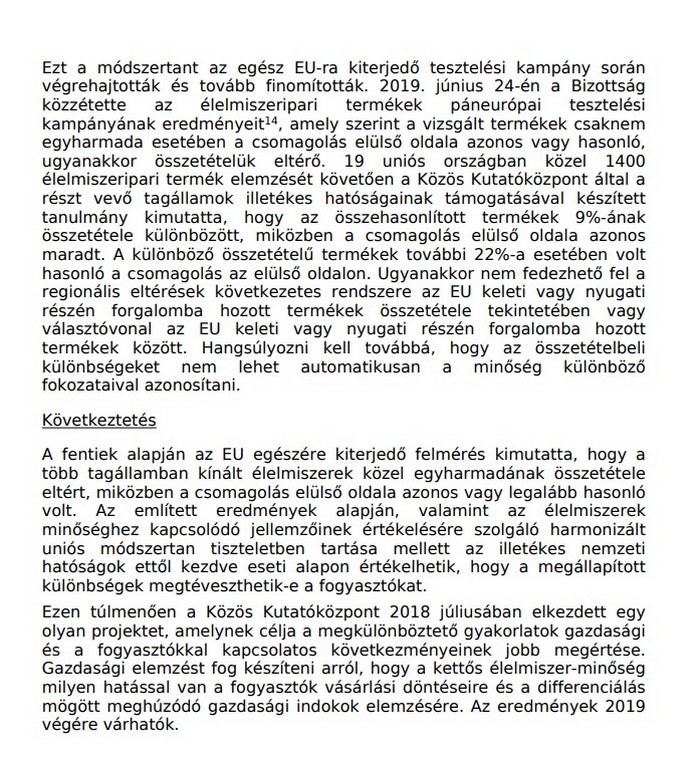The leading institutions of the European Union are convinced of the deception of Eastern European customers, and henceforth refer individual case investigations to national jurisdiction.
It took 6 years to respond to the 2017 petition of the president of CÖF-CÖKA, László Csizmadia, but based on the European Commission's investigation, Dolors Montserrat, the president of the European Parliament's Petitions Committee, stated in her reply letter that the composition of nearly a third of the foods offered in several member states differed, while the front side of the packaging was the same or at least similar. From now on, the competent national authorities can assess on a case-by-case basis whether the established differences are likely to mislead consumers.

Letter of reply to Dolors Montserrat, Chair of the Petitions Committee of the European Parliament
The president of CÖF-CÖKA, László Csizmadia, Slovak János Méry and Bulgarian Maya Manolova informed the European Commission in a separate petition in 2017 that laboratory tests prove that there is a difference in quality between the ingredients of consumer products used in Western and Eastern Europe . They insist that the quality of the same products in Austrian, German and French stores is better than in Eastern Europe.
The petitioners consider it unacceptable that people living in Eastern Member States are treated as secondary citizens in this regard.
The petitioners asked that, after investigating their complaint, to remedy this discrimination in the internal market, to review EU food safety regulations and to set up a permanent control system to detect abuses.
According to the response letter just sent, the European Commission since 2017
After analyzing nearly 1,400 food industry products in 19 EU countries, a study showed that the composition of 9% of the compared products differed, while the front side of the packaging remained the same.
Another 22% of products with different compositions had similar packaging on the front side.
Based on the mentioned results, the Petitions Committee refers the investigation of the cases to the competence of the competent national authorities, from which they can assess on a case-by-case basis whether the established differences could mislead consumers.

The opinion of the European Commission and the Petitions Committee of the European Parliament
Cover image: Illustration / MTI/Róbert Hegedüs












